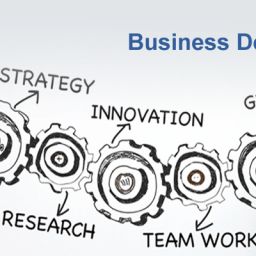
1. You can’t sustain a business without positive cash flow.
Even though profit may not be your driving motivation, you can’t sustain any business without generating cash. In most businesses, this means selling something, and proving that your product or service has value. Don’t delegate this cash management stage to anyone else in the business.
2. Make sure someone is managing people and operations.
Entrepreneurs are typically focused on the big picture–creating a vision, a purpose, and a long-term strategy. Building a business requires a stage of focus on execution and managing people accountably. Very few entrepreneurs can play both roles, so find a partner or hire an integrator to help.
3. Build a business culture to match your core values.
For the business to prosper, every employee, and your customers, must know and relate to your core values, such as product excellence, care for the environment, and personal integrity. These are the timeless principles that must guide all hiring, marketing, and execution decisions.
4. Implement the key business metrics you will live by.
This is the stage where you move from managing by your gut to managing by numbers. Identify the three most important metrics your business must hit every week to achieve growth goals. These will almost always be related to sales and marketing, since they must tie back to cash flow.
5. Stay connected and engaged with your employees.
A common entrepreneurial mistake is hiding in your office and assuming that everyone knows what is going on. People need to see and hear from you in a formal sense at least weekly, and you should practice “management by walking around.” Give constant feedback, and say thank you often.
6. Build pivot plans early to recover from oversights.
Every startup has had to pivot one or more times, no matter how certain they were of initial plan perfection. Thus you must constantly prepare for this stage by listening to customers, measuring customer value, and watching outside forces. Build change agility into all your processes.
7. Don’t try to do it all. Capitalize on your strengths.
Stay in your personal sweet spot. Your challenge is to hire help just before you reach capacity so you don’t stop growth. Each time, fill where you have the least interest and strength, so that over time you enter the stage of doing only the things you love, while using your talents to the fullest.
8. Don’t let your business grow beyond your comfort zone.
Too many entrepreneurs get so caught up in the challenges of growing their business that they can’t stop, and the business gets away from them. This stage may eat all your profits, and your schedule makes you miserable. The answer is to learn to say no when you’ve had enough action.
9. Increase your focus on coaching, training, and mentoring.
Every one of you entrepreneurs should recognize the stage in your business where your greatest satisfaction can come not from more growth, but from the opportunity to share what you have learned with those who follow, and may carry your legacy forward.
Building a business should be and can be as exciting a journey as inventing and building your product. Both are hard, with each stage being challenging, rewarding, scary, exhilarating, and among the most satisfying of things you will have done in your life.
Source: https://www.inc.com















